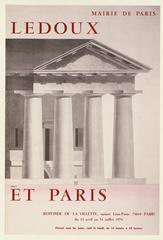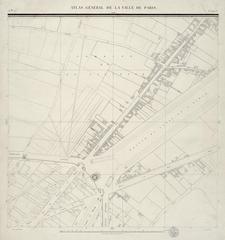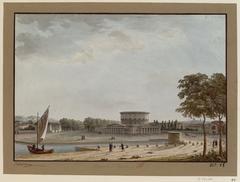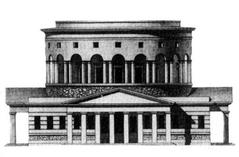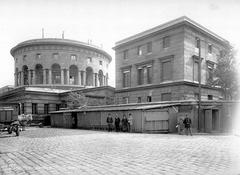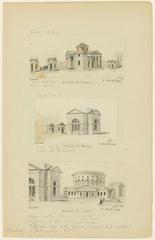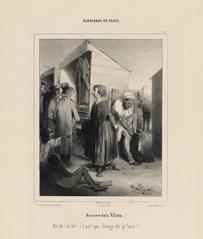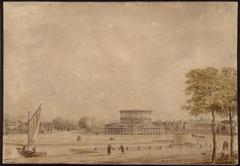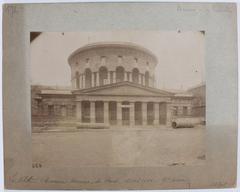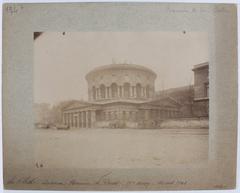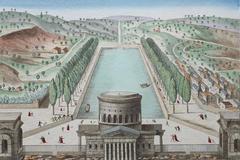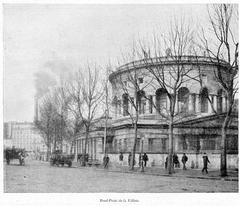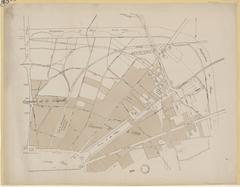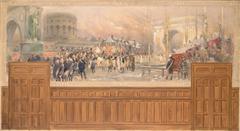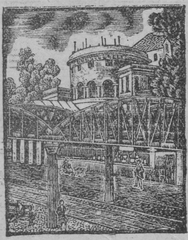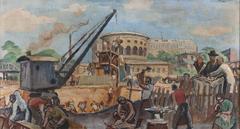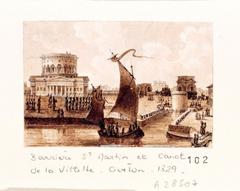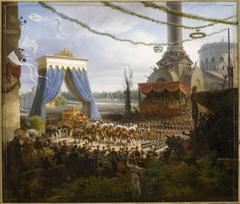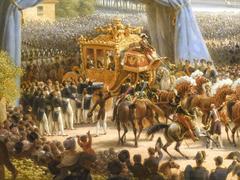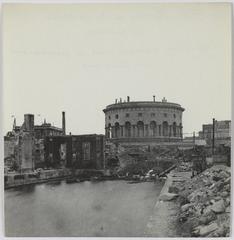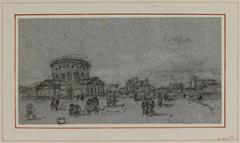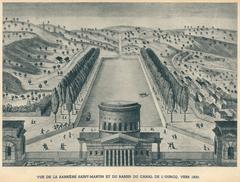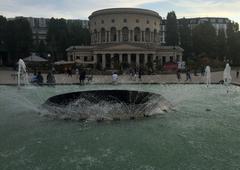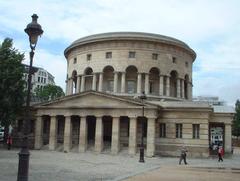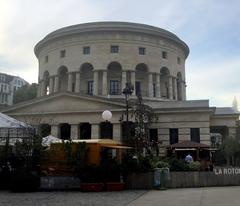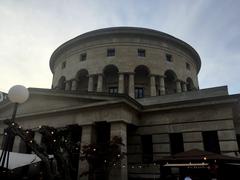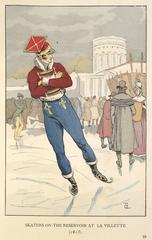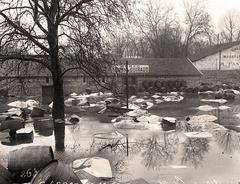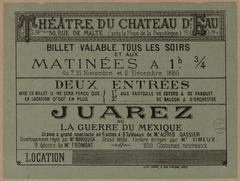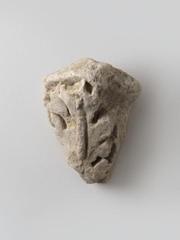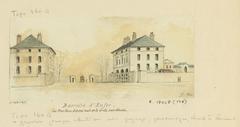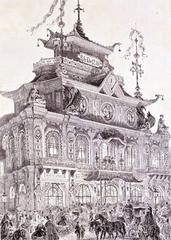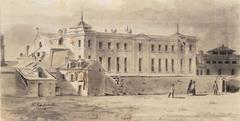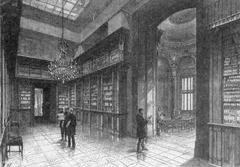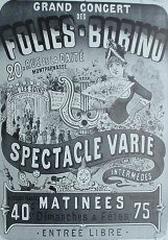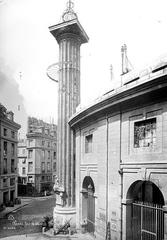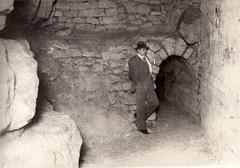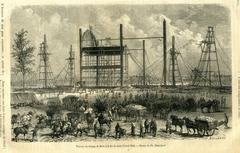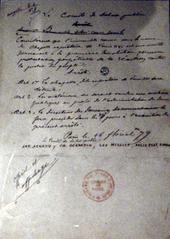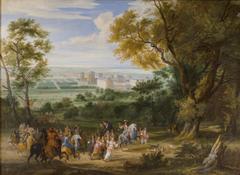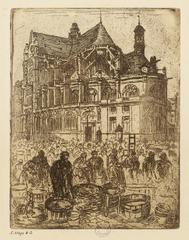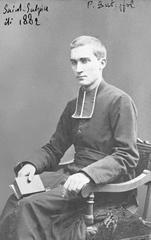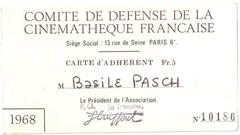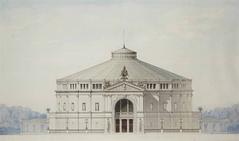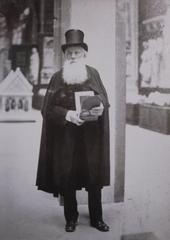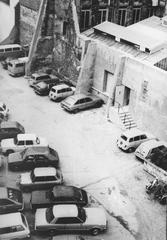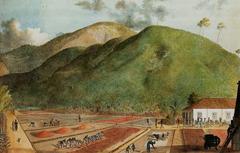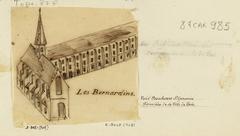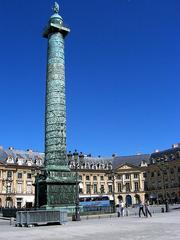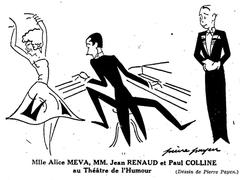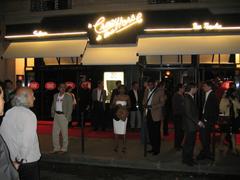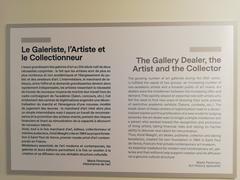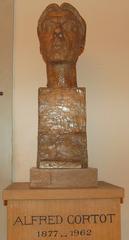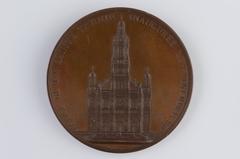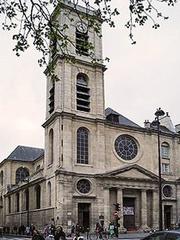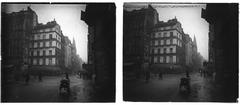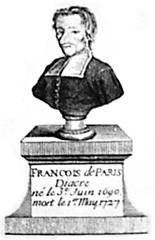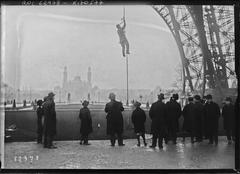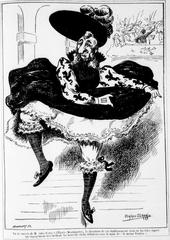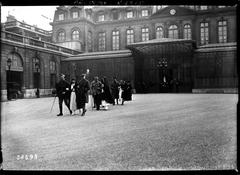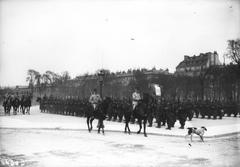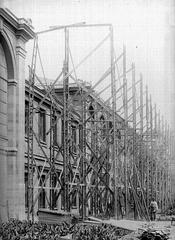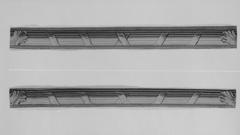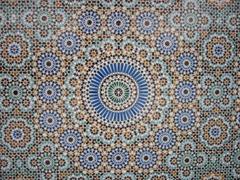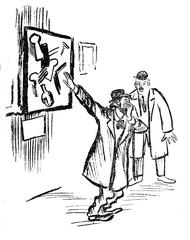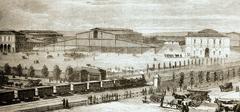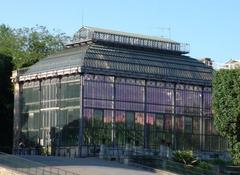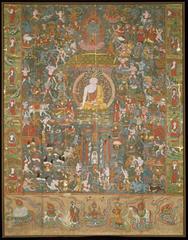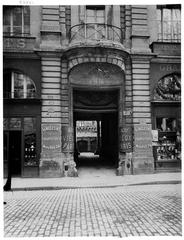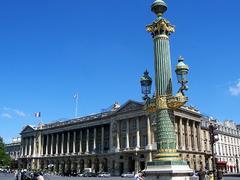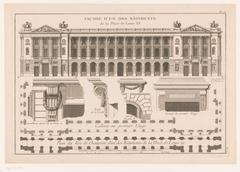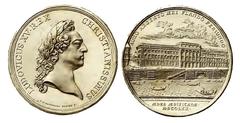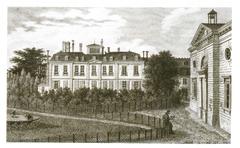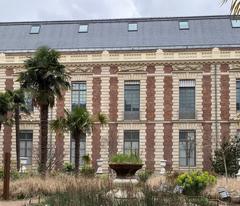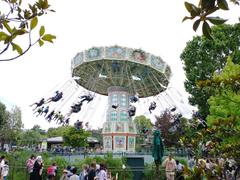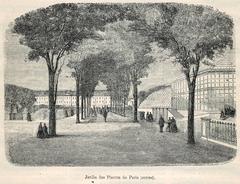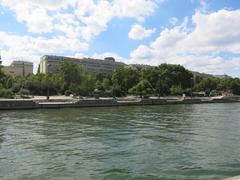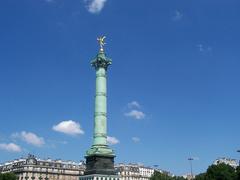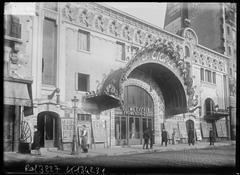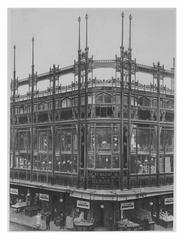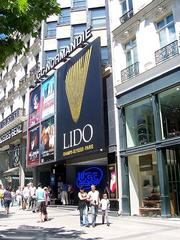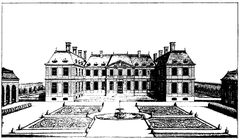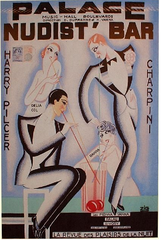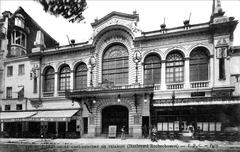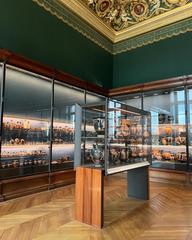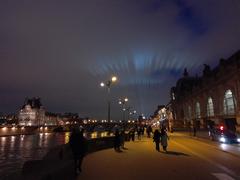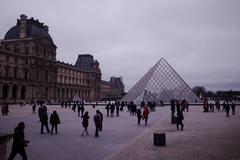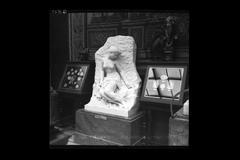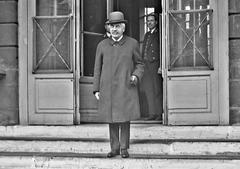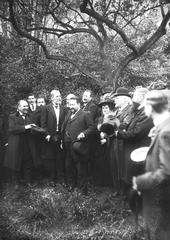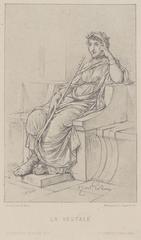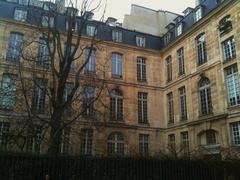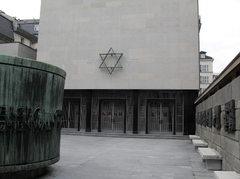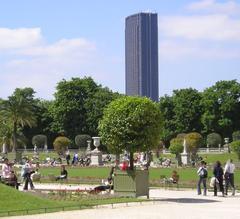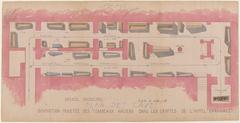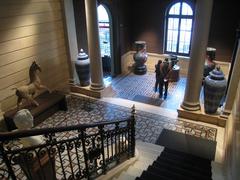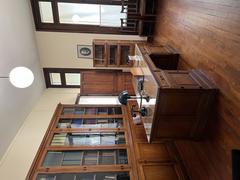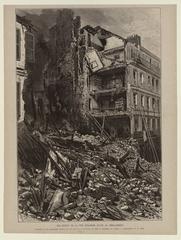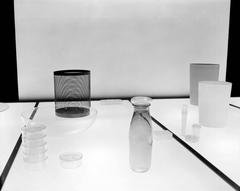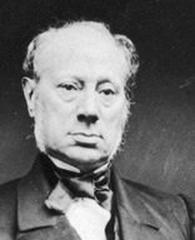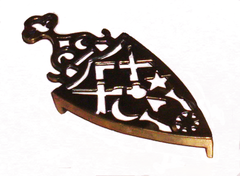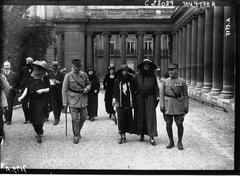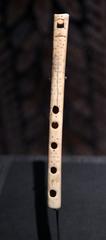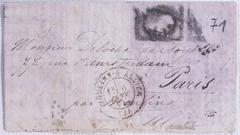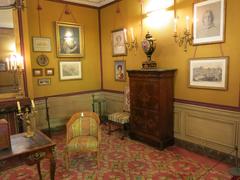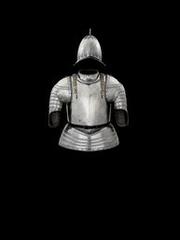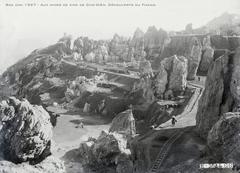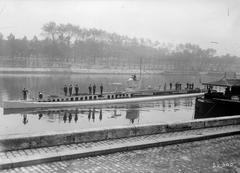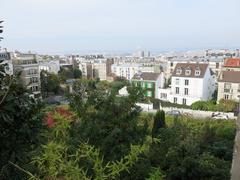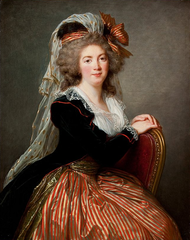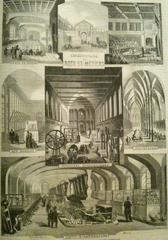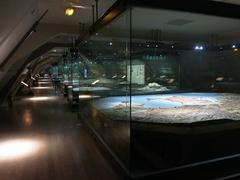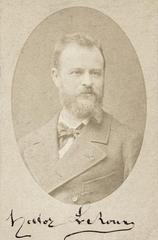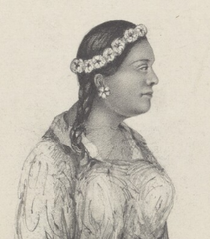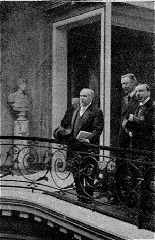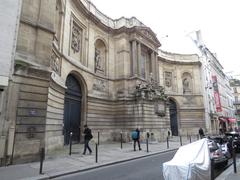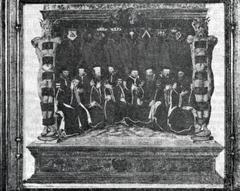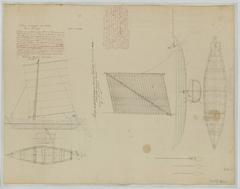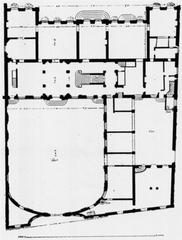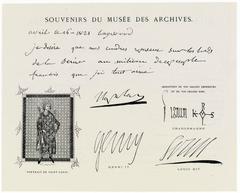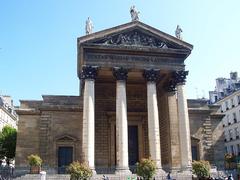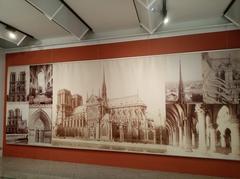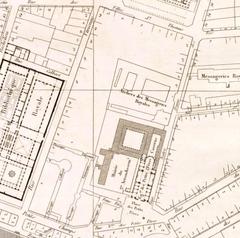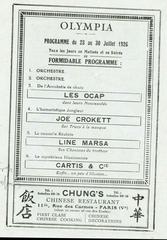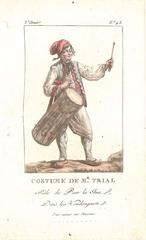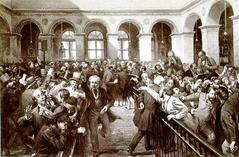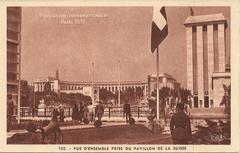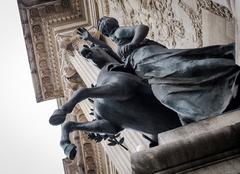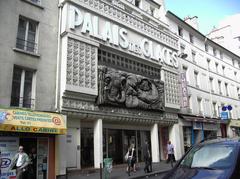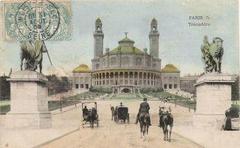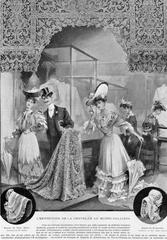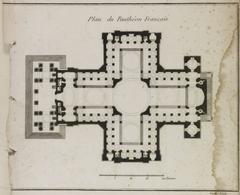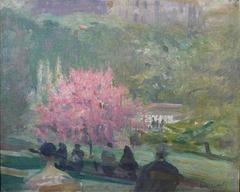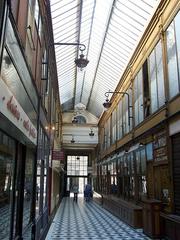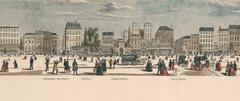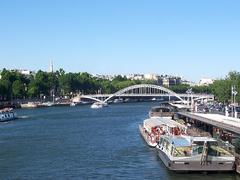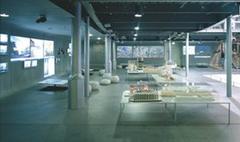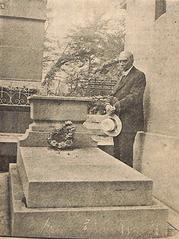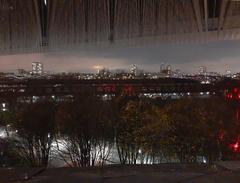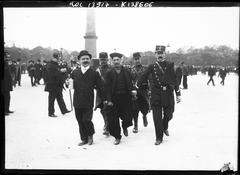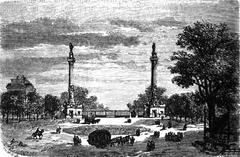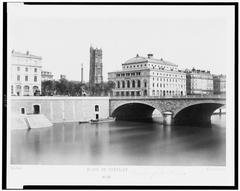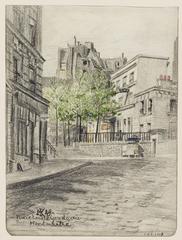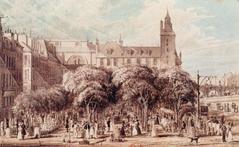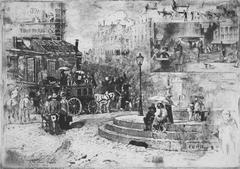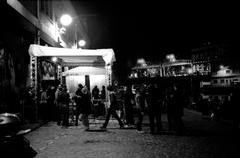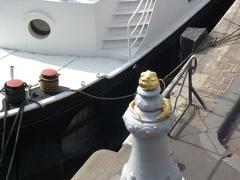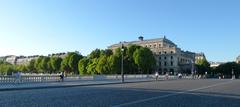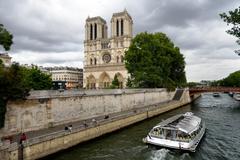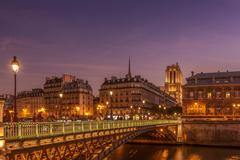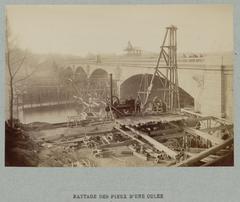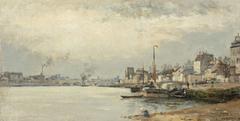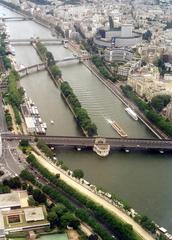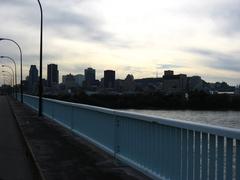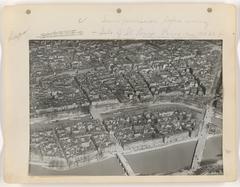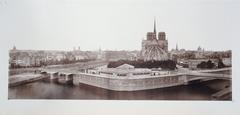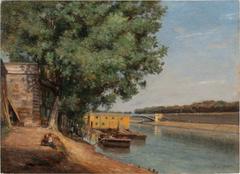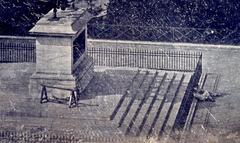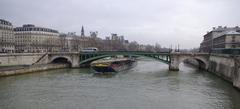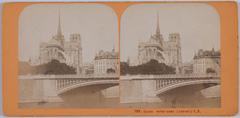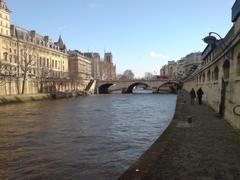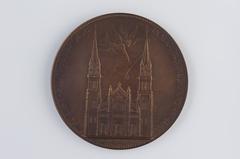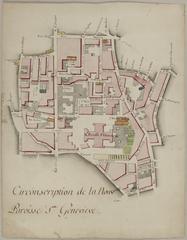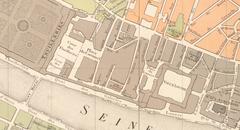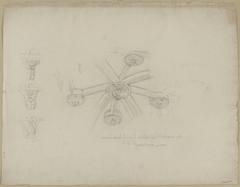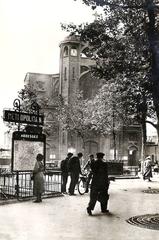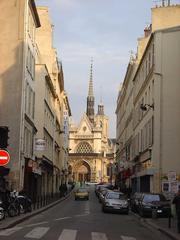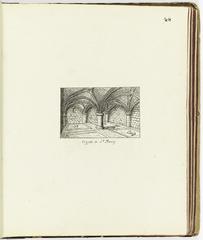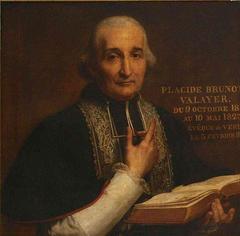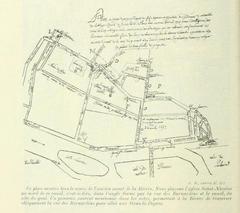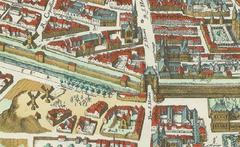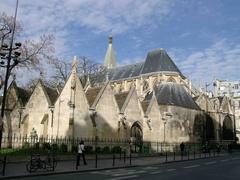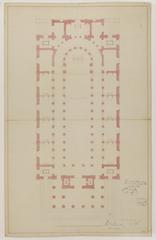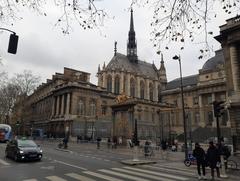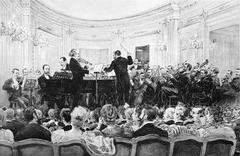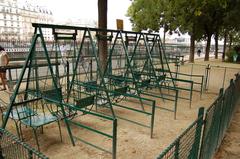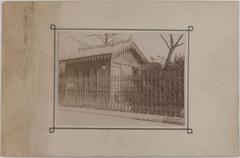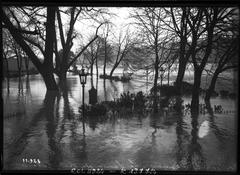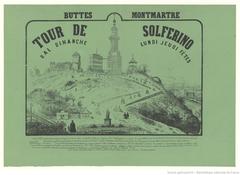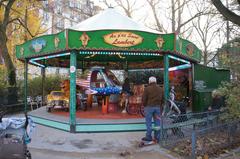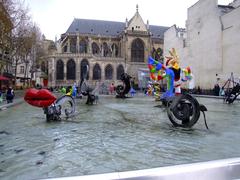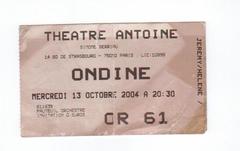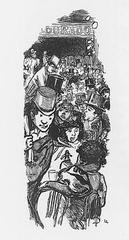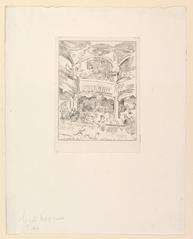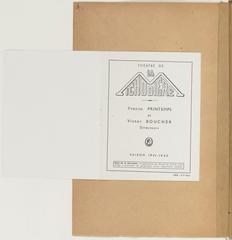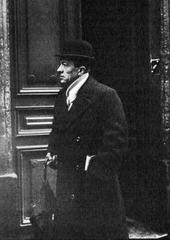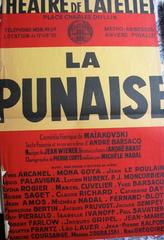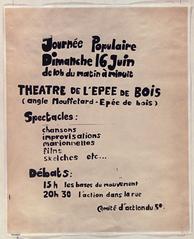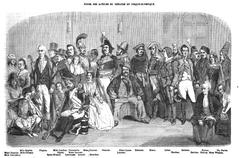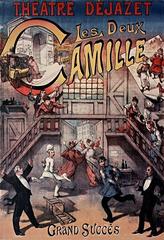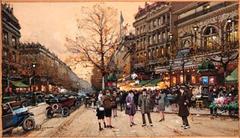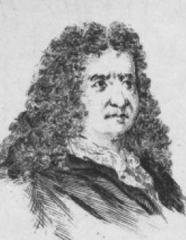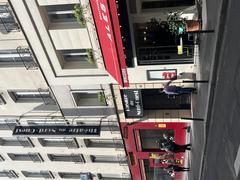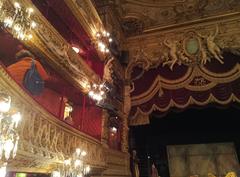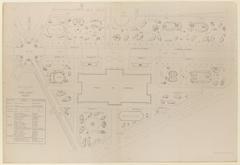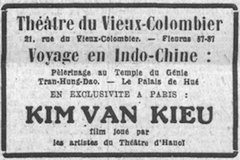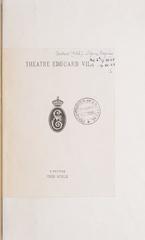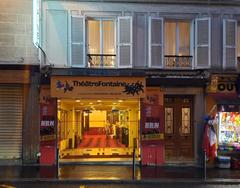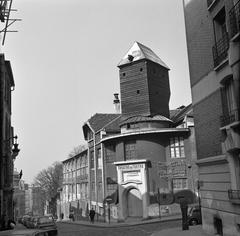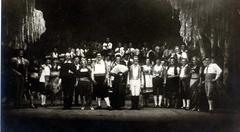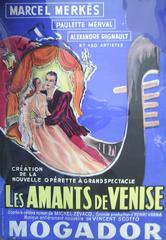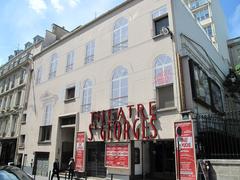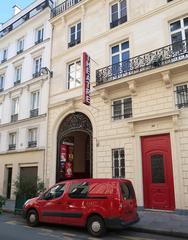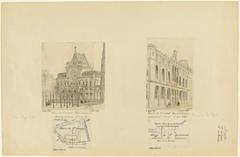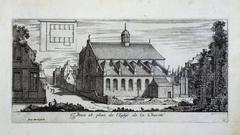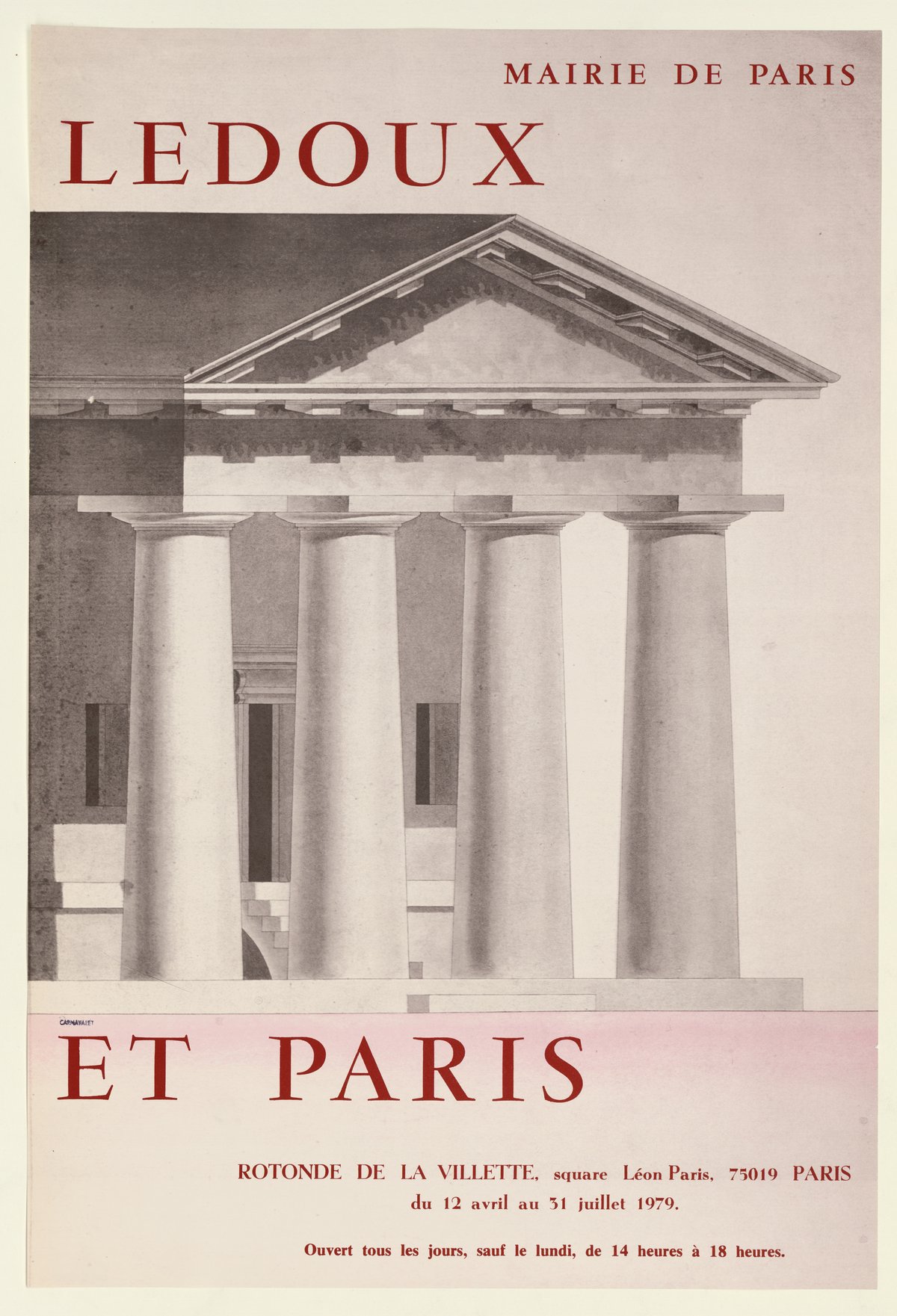
Visiting Barrière Saint-Martin: Tickets, Hours, and Historical Insights
Published Date: 17/08/2024
Discover the History and Significance of Barrière Saint-Martin
Planning a trip to the City of Lights? Paris is renowned for its iconic landmarks, and among these stands the Barrière Saint-Martin, also known as the Porte Saint-Martin. This historic monument, located in the 10th arrondissement, represents a significant piece of Parisian history and architecture. Constructed in 1674 under the orders of King Louis XIV, the Barrière Saint-Martin was designed to commemorate his military victories and to replace an earlier medieval gate from the 14th century (French Moments, Wikipedia). Designed by Pierre Bullet, a student of the renowned architect François Blondel, this triumphal arch serves as a majestic reminder of France’s grand past. The monument’s architectural beauty, coupled with its rich historical context, makes it a must-visit site for anyone keen on exploring Paris’s cultural and historical heritage (Wikipedia). As you plan your visit, this comprehensive guide will provide you with all the essential details, including history, visitor tips, and nearby attractions, ensuring your trip is both informative and enjoyable.
Contents at a Glance
- Introduction
- History
- Origins and Construction
- Architectural Design
- Historical Context
- The Mur des Fermiers Généraux
- Restoration and Preservation
- Cultural Significance
- The Canal Saint-Martin Connection
- Visitor Information
- Visiting Hours and Tickets
- Accessibility
- Safety
- Dining
- Activities
- Nearby Attractions
- Canal Saint-Martin
- Porte Saint-Denis
- Parc des Buttes-Chaumont
- FAQ
- What are the visiting hours for Barrière Saint-Martin?
- How much are tickets to Barrière Saint-Martin?
- Is the area safe for tourists?
- What are some nearby attractions?
- Conclusion
Complete Guide to Visiting Barrière Saint-Martin: History, Tickets, and Tips
Introduction
Planning a trip to Paris? Don’t miss the Barrière Saint-Martin, a historic monument that offers a glimpse into France’s grand past. This guide will cover everything from the monument’s rich history to practical visitor tips, including visiting hours, ticket prices, and nearby attractions.
History
Origins and Construction
The Barrière Saint-Martin, also known as the Porte Saint-Martin, is a historic monument located in the 10th arrondissement of Paris. It was constructed in 1674 under the orders of King Louis XIV to commemorate his military victories on the Rhine and in Franche-Comté. The gate replaced a medieval gate that was part of the city walls built by Charles V in the 14th century (French Moments).
Architectural Design
The Porte Saint-Martin was designed by Pierre Bullet, a student of François Blondel, who also designed the nearby Porte Saint-Denis. The structure is a triumphal arch, heavily rusticated and built from limestone and marble. It stands 18 meters high and features a large central arch flanked by two smaller pedestrian openings. The spandrels of the arch contain four allegories in bas-reliefs, and the entablature of the south façade bears a Latin inscription that reads: “To Louis the Great, for having vanquished the German, Spanish, and Dutch armies: the Dean of the Guild and the Aldermen of Paris” (Wikipedia).
Historical Context
The construction of the Porte Saint-Martin was part of a broader initiative to remodel Paris under the direction of Jean-Baptiste Colbert, the Minister of Finances under Louis XIV. This period saw the demilitarization of the former city walls and their replacement with a ring of Grands Boulevards. The fortified gates were dismantled and replaced by triumphal arches, which served both as monumental entrances to the city and as symbols of royal power and military success (Wikipedia).
The Mur des Fermiers Généraux
The Barrière Saint-Martin was also part of the Mur des Fermiers Généraux, an enclosure built between 1784 and 1791 to control the flow of goods and enable their taxation by the Ferme générale. This wall was one of several city walls built between the early Middle Ages and the mid-19th century. The construction of the wall left a vast grassy space of vines and market gardens, which later became part of the urban landscape of Paris (Wikipedia).
Restoration and Preservation
The Porte Saint-Martin underwent restoration in 1988 to preserve its historical and architectural integrity. This restoration was part of a broader effort to maintain Paris’s historic monuments and ensure their continued relevance and accessibility to the public (French Moments).
Cultural Significance
The Porte Saint-Martin is one of four triumphal arches in Paris, the others being the Arc de Triomphe du Carrousel, the Arc de Triomphe de l’Étoile, and the Porte Saint-Denis. These arches are significant not only for their architectural beauty but also for their historical and cultural importance. They serve as reminders of France’s military history and the grandeur of its royal past (French Moments).
The Canal Saint-Martin Connection
The Barrière Saint-Martin is located near the Canal Saint-Martin, a picturesque 4.6 km long canal in Paris that connects the Canal de l’Ourcq to the River Seine. The canal was constructed in the early 19th century under Napoleon Bonaparte’s orders to supply Paris with fresh water and facilitate goods transportation. The canal is a living timeline, capturing the essence of Paris from the days of Napoleon I to the artistic reflections in Alfred Sisley’s paintings (My Paris Itinerary).
Visitor Information
Visiting Hours and Tickets
While the Barrière Saint-Martin itself is an open-air monument and can be visited at any time, nearby attractions like the Canal Saint-Martin may have specific visiting hours. Always check the local guidelines or official websites for the most accurate information.
Accessibility
The area is well-connected by public transport, with several Métro stations nearby. Walking is also a great way to explore the neighborhood and its many attractions (Loving Travel).
Safety
While the area is generally safe, be mindful of pickpocketing, especially during busy events and nighttime activities (Loving Travel).
Dining
The neighborhood offers a wide range of dining options, from hip bars and neighborhood cafés to exquisite restaurants. Some popular spots include Hôtel du Nord and various eateries along the canal (Rachel IRL).
Activities
Take advantage of the free cultural, leisure, and sports activities available during events like Paris Plages. The canal also offers opportunities for leisurely strolls, boat rides, and even free swimming on Sundays during the summer (Sortir à Paris).
Nearby Attractions
- Canal Saint-Martin: Enjoy a scenic walk or boat ride along this historic canal.
- Porte Saint-Denis: Another triumphal arch designed by François Blondel, located nearby.
- Parc des Buttes-Chaumont: A beautiful park perfect for a leisurely day out.
FAQ
- What are the visiting hours for Barrière Saint-Martin? The monument itself is accessible any time, but check local guidelines for nearby attractions.
- How much are tickets to Barrière Saint-Martin? There are no tickets required to visit the monument.
- Is the area safe for tourists? Generally safe, but be cautious of pickpocketing.
- What are some nearby attractions? Canal Saint-Martin, Porte Saint-Denis, and Parc des Buttes-Chaumont.
Conclusion
The Barrière Saint-Martin is more than just a historic monument; it is a symbol of Paris’s rich history and cultural heritage. Whether you’re a history buff or just looking to explore a vibrant neighborhood, this iconic Parisian landmark has something for everyone. Plan your visit today and experience the grandeur of France’s past.
For more updates and detailed guides, follow us on social media or check out related posts on our website.
Summary and Key Takeaways
The Barrière Saint-Martin is more than just a historic monument; it is a vibrant symbol of Paris’s rich cultural and architectural heritage. From its origins under King Louis XIV to its role in the city’s urban development, this triumphal arch offers visitors a unique glimpse into France’s illustrious past. Located near the picturesque Canal Saint-Martin, the monument is easily accessible and surrounded by a variety of attractions and dining options, making it an ideal spot for both history enthusiasts and casual tourists alike. The neighborhood’s blend of historical significance and contemporary charm ensures that every visit is a memorable experience. As you explore the Barrière Saint-Martin and its surroundings, you’ll not only witness the grandeur of French architecture but also engage with the living history that continues to shape Paris today. Whether you’re strolling along the canal, enjoying a nearby café, or simply admiring the monument’s intricate design, the Barrière Saint-Martin promises a rich and rewarding journey through time (French Moments, My Paris Itinerary).
Sources and Further Reading
- French Moments, 2023, https://frenchmoments.eu/porte-saint-martin/
- Wikipedia, 2023, https://en.wikipedia.org/wiki/Porte_Saint-Martin
- Wikipedia, 2023, https://en.wikipedia.org/wiki/Place_de_la_Nation
- My Paris Itinerary, 2023, https://myparisitinerary.com/canal-saint-martin/
- Loving Travel, 2023, https://loving-travel.com/en/canal-saint-martin-paris/
- Rachel IRL, 2023, https://rachelirl.com/canal-st-martin-paris/
- Sortir à Paris, 2024, https://www.sortiraparis.com/en/what-to-visit-in-paris/walks/articles/316049-paris-plages-2024-settles-on-the-canal-saint-martin-the-program-of-events
- HeyTripster, 2023, https://heytripster.com/tours/canal-saint-martin-paris/
- Snippets of Paris, 2023, https://snippetsofparis.com/canal-saint-martin/
